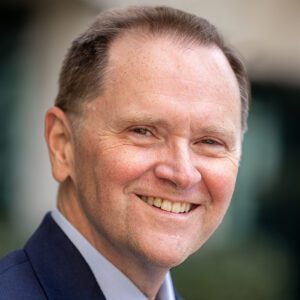Announcing two exciting, new member-driven regional conference pilot programs!
Dear Colleagues,
I want to share with you the results of the UPCEA Presidential Task Force on Regional Conferences, which conducted a comprehensive and iterative review of the signature deliverable of UPCEA’s five regions: a fall conference. The UPCEA Board of Directors charged the Task Force to make recommendations for reducing the number of regional conferences to no more than three per year to help UPCEA strike a more strategic balance between the current model of offering eight total conferences per year (national and regional)—an extraordinarily high number for an association the size of UPCEA—and the need to develop new initiatives that diversify and strengthen the value proposition for membership.
Comprised of past presidents and each region’s Regional Representative to the Board, the Task Force issued a series of recommendations designed to promote collaboration and innovation, leverage event scale, and offer more affordable event attendance options to members. Co-chairs Rich Novak, Rutgers University, and Chris Sax, Maryland University of Integrative Health, invite you to review the full set of recommendations. In summary, the recommendations suggest two inventive pilot programs be launched over the course of the next few years.
Operationalized in the fall of 2018, the first pilot will leverage economies of scale by hosting one “joint” or “super-regional” conference, wherein two adjacent regions will partner together to host a conference near their shared border. Likely to be more cost-effective than a smaller, single-region conference, a super-regional event would also offer more networking and professional development opportunities. The first super-regional conference to be piloted is planned between Mid-Atlantic and South regions, potentially in the greater Washington, DC, area.
Realized in the spring of 2020, the second pilot will capitalize on the geographic rotation of the UPCEA Annual Conferences, wherein the region in which an Annual Conference is hosted will “append” a special, half-day regional program to the Annual Conference in lieu of a standalone fall conference. Priced affordably, this special package is designed to preserve the collegiality and accessibility of regional conferences while providing great value by limiting a region’s annual events to one. The New England region will pilot this approach by foregoing a fall conference in 2019 and hosting a special regional program in the spring of 2020 at the Annual Conference in Boston, MA.
Over the next few weeks, the Regional Cabinet, comprised of the five Regional Representatives to the Board, convened by Regional Cabinet Chair Beth Mulherrin, will begin the next phase of this work—to map out with more specificity the timelines and structures needed to operationalize each pilot. As this work comes into greater focus, you can expect more information, including specific locations for future super-regional conferences and what shape the Annual Conference regional package will take.
In meantime, click here to view what’s on tap for the 2017 regional conferences planned for this fall.
Sincerely,
Bob Hansen, CEO
UPCEA

Dr. Robert J. Hansen has served as Chief Executive Officer of UPCEA, the online and professional education association, since 2010. UPCEA has more than tripled in size during Hansen’s tenure by focusing on new initiatives that elevate the field, including industry-leading events for online leadership and credential innovation in higher education, online leadership development programs, and a popular research and consulting service for members. He previously served in senior leadership roles in both public and private universities, and as an education policy aide in the administration of former Illinois governor, Jim Edgar. Hansen earned a Ph.D. in English from the University of Notre Dame, an M.A. in Literature from the University of Michigan, and a B.S. in Psychology from the University of Illinois.
